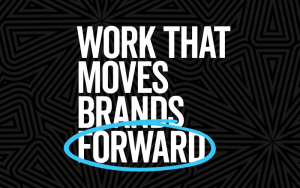“By failing to prepare, you are preparing to fail.” – Benjamin Franklin
You wouldn’t believe how many established and well-known company executives avoid writing a digital marketing plan. They have skated by on killer instincts and a lot of luck.
However, instincts aren’t scalable, and luck always runs out. Eventually, a lack of preparation gets the better of us and we find ourselves wondering why the old standards aren’t working anymore (hello, cold-calling?) and needing new avenues to find business or different paths to new success. The digital world waits for no one, and without a plan, you are left behind in the digital dust.
Excuses for Not Writing a Digital Marketing Plan
I’ve truly heard it all. Reasons for lacking and neglecting to build a solid digital marketing plan vary from legitimate rationalizations to downright dog-ate-my-homework excuses. I’ve sat in conference rooms and asked executives about their marketing plans, and I’ve heard the most outrageous excuses for not writing a digital marketing plan.
- “We don’t need a marketing plan — it’s all in my head. I’ve gotten this far, haven’t I?”
- “Nah, we don’t have time to write a marketing plan. We just need a quick-start to bring in more revenue.”
- “We don’t have that kind of investment. It costs a lot to build a marketing plan. I just need to make money and quickly.”
- “I already know what to do, I just don’t have the time to do it myself.”
- “We just need to up our SEO game (substitute SEO for any other tactic: Social, Email, Website, etc.).”
- “It’s not a marketing plan we need, we need more leads for my sales team.”
- “My customers aren’t online or searching on Google.”
All of these statements seem to come down to time and money. But actually, the root of these excuses is patience and priority. We say we don’t have the time or money, but what we really mean is that we refuse to sit still for the next three months and write a plan to make the next five years worthwhile. We are prioritizing quick and cheap over sustainable success.
The response I give to nearly all of these comments is this one:
“You simply cannot afford to waste another dime on a marketing tactic that will not bring you any real results. That is what’s wasting time and money. Give me three months, and we’ll put every penny of your budget toward achieving your measurable goals for the next five years.”
Leapfrog Your Competition with a Digital Marketing Plan
What so many executives don’t see is that MOST people are impatient. Most people don’t have the resources or perseverance to roll up their sleeves and do the hard work of creating a digital marketing plan. This means that most of your competitors aren’t doing this hard work, which means you’re twice as likely to outrank your competitors by buckling down and doing the planning that most executives are not inspired to do.
Writing a digital marketing plan isn’t the easy way. It is not the cheap or fast way. But it is the most effective way. And it’s the only way to uncover all the market opportunities that are available to you for your unique business – your processes, your customers, your industry, and your selling proposition. Only by following the steps in creating your digital marketing plan will you truly unlock the untapped strategies and tactics you’ve been missing in achieving your goals.
Tactics vs. Strategy
Consider this real discussion, with an actual client, after I suggested they needed a digital marketing plan:
Client: “But why can’t you just fix my PPC campaigns? That will bring me more traffic.”
Me: “Is traffic your goal? I thought we talked about generating more qualified leads.”
Client: “Well, yeah, but if there’s more traffic, we’ll get more leads, yeah?”
Me: “Only if there are conversion opportunities that appeal to your best customers on your website.”
Client: “Oh.”
Tactical components of a plan, such as paid media, SEO, website development, and social media, are effective tools to create powerful and impactful campaigns. But a lot of money can be wasted if we’re not crystal clear on the following:
- Who we’re targeting.
- What we want them to do.
- Where to reach them online.
- When they’re thinking about problems we can solve.
- How we want them to feel about our brand.
- Why they should choose us over the competition.
Tactics are just tools. Left to their own devices, they can be more of a liability than an asset.
The strategy in your digital marketing plan, which lays out the road map for who, what, where, when, how, and why, will instruct an actionable implementation schedule for using these tools effectively and efficiently. The alternative of testing costly tactics to see what’s working (and what’s not) in real time is as effective as throwing spaghetti at a wall and seeing what sticks. Don’t get me wrong, testing and optimizing is absolutely essential, but a strategic marketing plan is crucial in helping you identify which channels, messaging, and content will be best applied to solve for your unique goals.
Related: Why Advertising Now (During COVID-19) May Be the Best Time
It will save you time and money (along with a whole lot of headaches) in the long run. So, will you let the excuses get the better of you? How will you begin writing your digital marketing plan? Ironmark works with clients every day on building their strategies for digital marketing success. For more information on beginning your strategic marketing plan, contact Lynne Kingsley – she’d love to help you get started.




